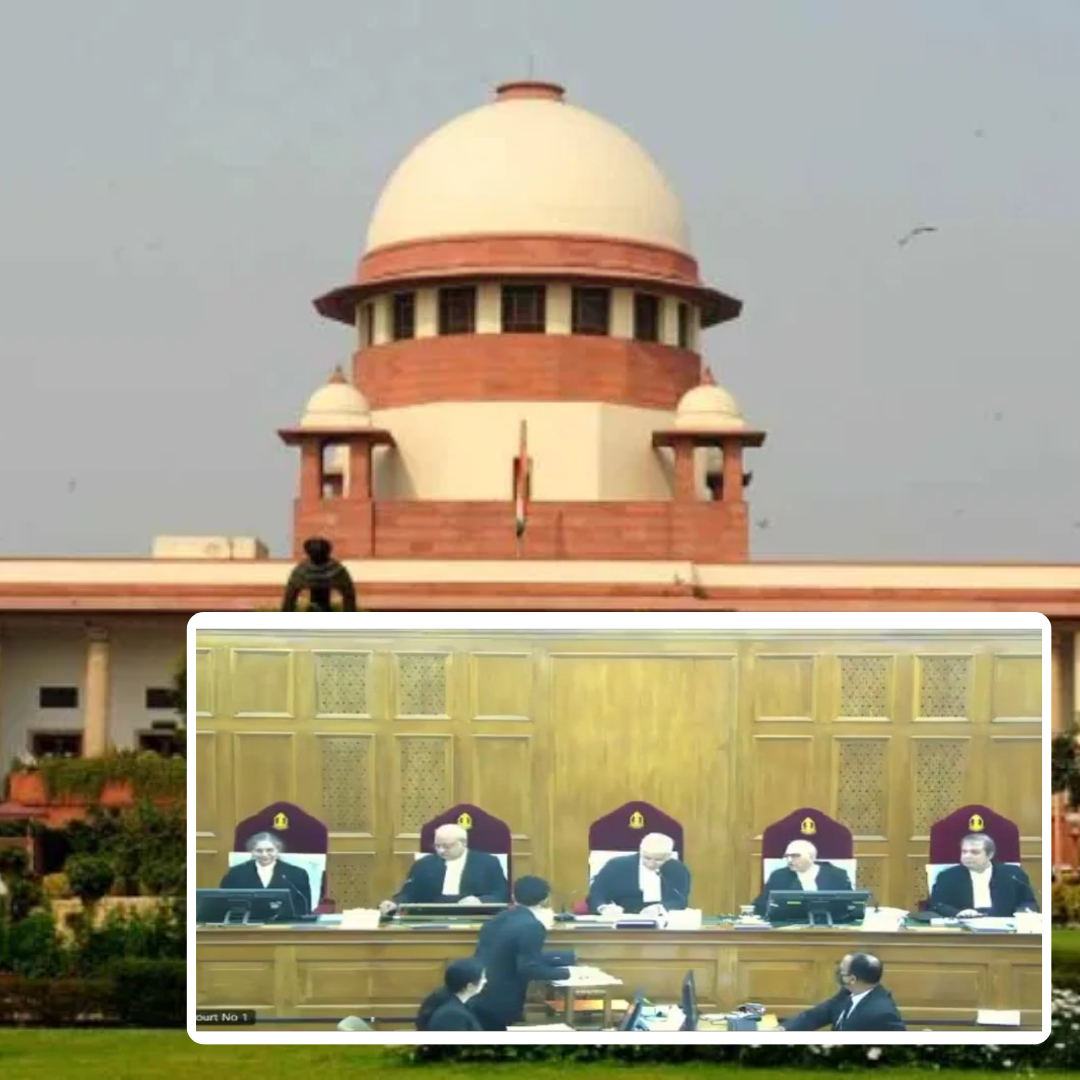Supreme Court Clears Law Providing 10% Quota For Economically Weaker Sections: Know More
 |
|The law, which provides the EWS 10 per cent reservation in colleges and government jobs, was upheld in a 3-2 verdict delivered by a five-judge bench led by Chief Justice of India Uday Umesh Lalit.
In a significant judgement on Monday, the Supreme Court delivered its verdict validating the central law for 10 per cent reservation in colleges and government jobs for the economically weaker sections (EWS).
Delivering the verdict, Justice Dinesh Maheshwari said, "The EWS quota law doesn't violate basic structure or equality code for taking into account economic criterion." He added that the law "doesn't cause damage to any essential feature by exceeding 50 per cent ceiling for quota since the ceiling is itself flexible".
The quota law has been upheld by the court in a 3-2 verdict, just a day before Chief Justice India Uday Umesh Lalit retires, Hindustan Times reports.
History Of The 103rd Amendment
The 103rd constitutional amendment, which was added to Article 15 and Article 16 of the Indian Constitution and was cleared in January 2019, secures 10 per cent reservation for the economically weaker sections (those who do not belong to SC, ST and OBC castes, and whose annual family income is less than Rs 8 lakh) in colleges and government jobs.
However, the law was instantly challenged in the Supreme Court. Those against it believed that the amendment would end up changing the 'basic structure' of the Constitution.
While the amendment was cleared soon after BJP lost Madhya Pradesh, Rajasthan and Chhatisgarh elections, and was aimed at the key voter base of the national ruling party, the opposition parties did not oppose the law. Consequently, 40 petitions were heard by the Supreme Court regarding the validity of the law, reports NDTV.
The petitioners questioned primarily the allotment of the EWS quota, and how it could cross the 50 per cent national cap on reservation, which was initially set by the Supreme Court in the 1992 Indra Sawhney, or the Mandal Commission case, where the SC stated that "reservations should not exceed 50 per cent, barring extraordinary situations".
Breakdown Of Court Proceedings
Following the string of petitions, and after hearing the EWS case, the Supreme Court had stated that its decision would rest on three questions: whether the amendment changed the basic structure of the Constitution since it allowed economic status as a factor to decide reservation; whether private institutions should be mandated to follow it; and will the quota exclude communities that have been historically marginalised on the grounds of caste, religion and tribe.
The five-judge bench – headed by Chief Justice Uday Umesh Lalit and comprising justices Dinesh Maheshwari, S Ravindra Bhat, Bela M Trivedi and JB Pardiwala – ruled on the legal problems concerning the 103rd Constitution Amendment and its validity.
While CJI Lalit and Justice S Ravindra Bhat expressed dissent in upholding the validity of the law, calling the law "discriminatory and violative of basic structure". The CJI concurred with Justice Bhat when he stated that while reservation on economic status is allowed, the law should not exclude SC, ST and OBC categories as it will make the law discriminatory.
On the other hand, while Justice Maheshwari said that reservation on an economic basis does not violate the basic structure of the Constitution, Justice Trivedi concurred with him, saying the amendment is enabling the state to make special provisions for those other than the SC, ST and OBC castes, and hence, should be seen as an affirmative action.
Upholding the central law in agreement with Justice Maheshwari and Justice Trivedi, Justice Pardiwala said, "The ones who have moved ahead should be removed from backward classes so that ones in need can be helped. The ways to determine backward classes need a re-look so that ways are relevant in today's time. Reservation should not continue for an indefinite time so that it becomes a vested interest."
Also Read: Acing The Shuttle: India Wins Multiple Medals at BWF Para-Badminton World Championships
